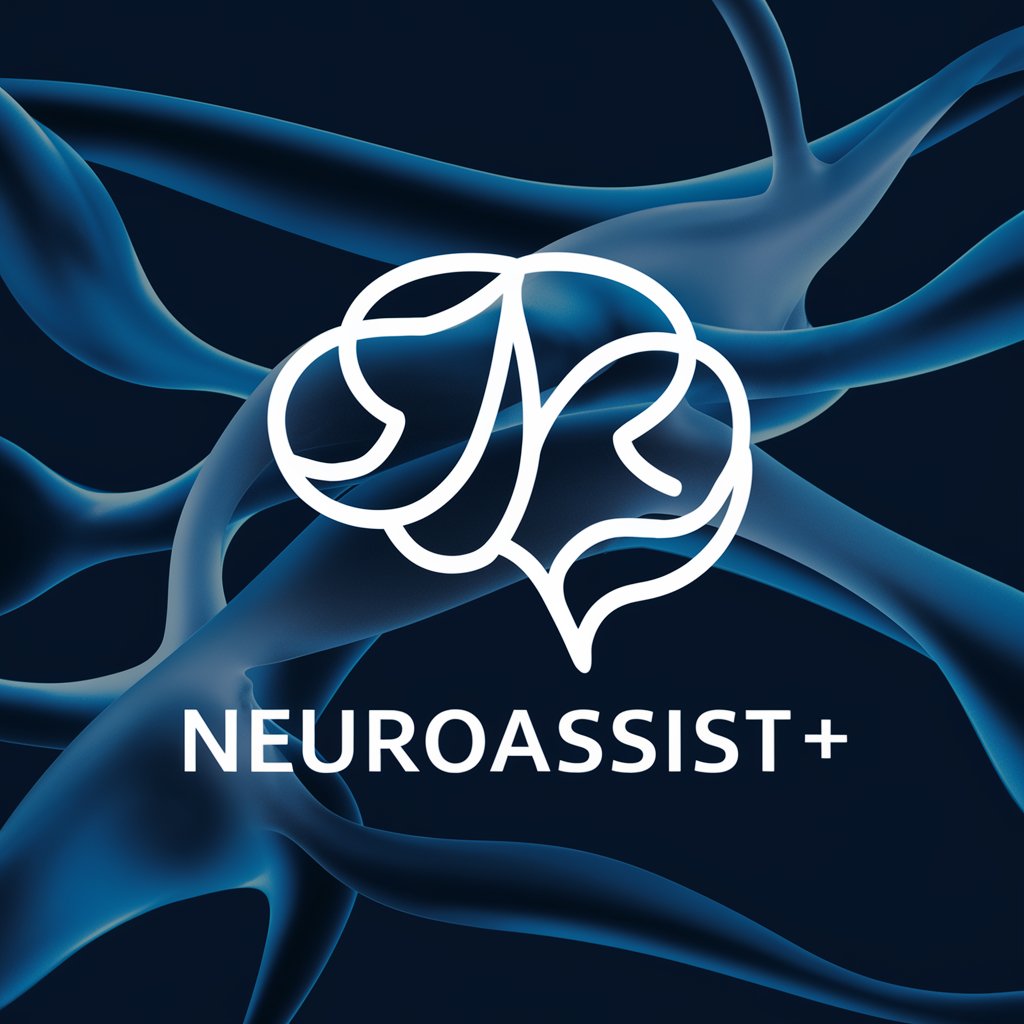
Epilepsy Surgery Assistant - AI-powered Epilepsy Analysis

Welcome to the Epilepsy Surgery Assistant.
Optimizing epilepsy treatment planning with AI
Analyze the patient's seizure semiology to determine the likely seizure onset zone.
Review the interictal and ictal EEG findings for potential lateralization clues.
Interpret the MRI and PET scan results to identify any structural abnormalities.
Assess the neuropsychology report for cognitive impacts related to the epilepsy.
Get Embed Code
Introduction to Epilepsy Surgery Assistant
Epilepsy Surgery Assistant (ESA) is a specialized tool designed to support the intricate process of epilepsy surgery planning, crucial for epileptologists and functional neurosurgeons. ESA synthesizes complex medical data into structured formats to aid in seizure localization and lateralization, and suggests surgical or alternative treatment options based on a comprehensive analysis of semiology, EEG findings, neuroimaging, and neuropsychology assessments. By offering hypotheses on seizure origin and providing treatment recommendations, ESA serves as an invaluable aid in the pre-surgical evaluation of epilepsy patients. Powered by ChatGPT-4o。

Main Functions of Epilepsy Surgery Assistant
Seizure Localization and Lateralization
Example
Analyzing semiology and EEG data to determine the seizure onset zone.
Scenario
A patient with focal seizures is being considered for surgery. ESA reviews the patient's seizure semiology, EEG findings, and neuroimaging results to identify the most likely areas of seizure origination, aiding in the surgical planning process.
Surgical Treatment Recommendations
Example
Suggesting specific surgical options like resective surgery or neuromodulation based on comprehensive assessment.
Scenario
After analyzing all available data, ESA may recommend a temporal lobectomy for a patient with mesial temporal sclerosis, providing a detailed rationale for this choice.
Alternative Treatment Suggestions
Example
Proposing alternative antiseizure medications or lifestyle changes when surgery is not a viable option.
Scenario
For patients deemed unsuitable for surgery due to the risk of cognitive decline or other factors, ESA suggests new antiseizure medication regimes or lifestyle adjustments to better manage their condition.
Ideal Users of Epilepsy Surgery Assistant
Epileptologists
Specialists in the study and treatment of epilepsy who require detailed analyses of seizure origin for surgical planning. ESA provides them with a sophisticated tool to interpret complex clinical data, facilitating decision-making for optimal patient outcomes.
Functional Neurosurgeons
Surgeons specializing in epilepsy surgery who benefit from precise localization and lateralization of seizure foci. ESA's data synthesis helps them plan surgeries with greater accuracy, aiming to achieve seizure freedom while minimizing risks.
Research Scientists in Epileptology
Researchers focusing on the mechanisms of epilepsy and the development of new treatments. ESA serves as a resource for analyzing clinical data, contributing to studies on the efficacy of various surgical and non-surgical epilepsy treatments.

Using the Epilepsy Surgery Assistant: A Step-by-Step Guide
1
Visit yeschat.ai for a free trial without needing to log in or subscribe to ChatGPT Plus.
2
Gather and prepare detailed medical history and current information on the patient's epilepsy condition, including seizure semiology, EEG findings, and neuroimaging results.
3
Input the collected data into the Epilepsy Surgery Assistant, ensuring accuracy and completeness for optimal analysis.
4
Review the Epilepsy Surgery Assistant's analysis, focusing on the hypotheses provided for seizure localization and lateralization, and the recommended treatment options.
5
Discuss the findings and recommendations with a multidisciplinary team to develop a comprehensive treatment plan tailored to the patient's needs.
Try other advanced and practical GPTs
GPT Cosmetic Surgery
Empowering your beauty journey with AI

Trauma Surgery Consultant
Empowering trauma surgery knowledge with AI precision.

Robotic Surgery Technique Refiner
Empowering Surgeons with AI-Driven Precision

Oral surgery
Empowering Your Words with AI

Surgery Recovery Companion
Your AI-Powered Recovery Partner

Cosmetic Surgery Q&A
Visualize Your Beauty Transformation

The Cardiac Surgery Bunker
Empowering cardiac surgery decisions with AI

Watermark Remover Wizard
Seamlessly erase watermarks with AI

Fair Flower | Picking a Strain! 👨🏽🌾
AI-Powered Personalized Cannabis Discovery

TWISTED PFISTER FABRICATION
Powering Tech Decisions with AI

InfoConsult AI Assistant
Empowering Decisions with AI Insight

Metatransformer Content Bot
Revolutionizing Content Creation with AI

Frequently Asked Questions about the Epilepsy Surgery Assistant
What is the Epilepsy Surgery Assistant?
The Epilepsy Surgery Assistant is a specialized AI tool designed to assist epileptologists and neurosurgeons in planning epilepsy surgery. It synthesizes patient data to offer hypotheses on seizure localization and lateralization, recommending surgical or alternative treatment options.
How does the Epilepsy Surgery Assistant improve patient care?
By providing a detailed analysis of a patient's epilepsy condition based on medical data, the Epilepsy Surgery Assistant helps healthcare professionals make informed decisions, potentially leading to more effective treatment plans and improved outcomes.
Can the Epilepsy Surgery Assistant replace a doctor's judgment?
No, the tool is designed to support, not replace, the clinical judgment of healthcare professionals. It provides data-driven insights that should be considered as part of a comprehensive clinical evaluation.
What kind of data does the Epilepsy Surgery Assistant require?
The assistant requires detailed information about the patient's epilepsy condition, including age, seizure onset, handedness, epilepsy risk factors, current and trialed antiseizure medications, seizure semiology, neurophysiology data (EEG), neuro-imaging (MRI, PET, fMRI), and neuropsychology assessment.
How accurate is the Epilepsy Surgery Assistant?
While the assistant provides highly accurate analysis based on the data inputted, its accuracy is contingent on the completeness and quality of the data provided. It should be used in conjunction with other clinical assessments for the best outcomes.





